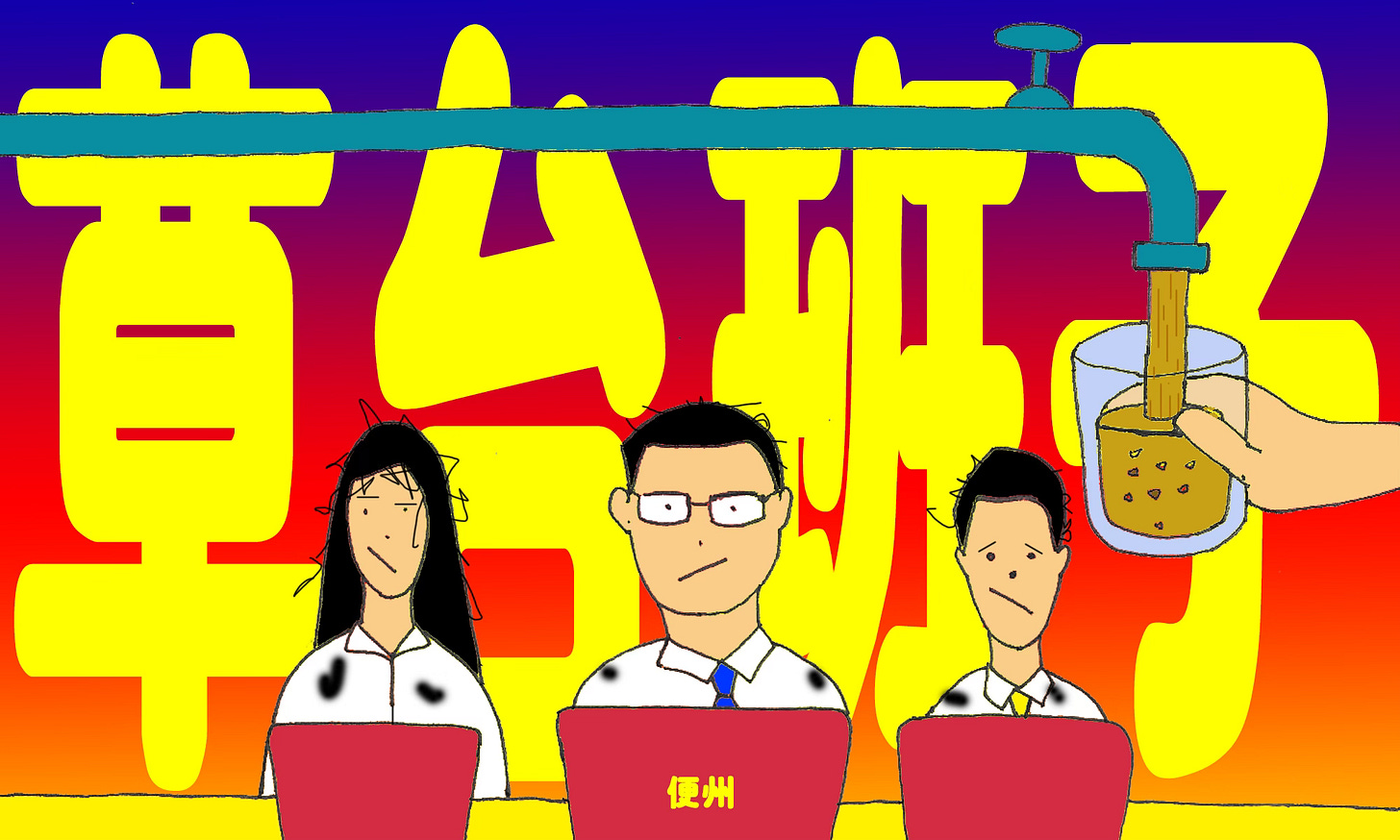"Clown show" — Phrase of the Week
Water authorities in Hangzhou come under fire and residents hit by foul-smelling tap water

Our phrase of the week is: "clown show" (草台班子 cǎo tái bān zi)
Context
In the early hours of July 16, residents in several Hangzhou neighbourhoods noticed a strong, foul smell coming from their tap water.
Many others learned of the issue later through online forums and property group chats, as images of grey-brown water filling sinks and cups began circulating. Some of these quickly went viral on social media.
Despite growing concern, the authorities remained silent for most of the day. It wasn’t until 9:44pm that the state-owned water company finally issued a statement. By then, many had already used the contaminated water for cooking or washing. The statement offered little detail and no explanation of the cause.
The next day, on July 17, the company issued a second statement, this time including a formal apology, but still with no clear cause.
Officials denied rumours of sewage contamination but failed to offer proof, fuelling further speculation. Eventually, investigations revealed that the smell was caused by a massive algal bloom in a river supplying one of Hangzhou’s reservoirs.
But by then, trust had already collapsed. Frustrated residents turned to a popular internet phrase to criticise the authorities:
This farce vividly illustrates what it means when people say “the world is just one big clown show.
这场闹剧活生生演绎了什么叫 “世界是个巨大的草台班子”。
zhè chǎng nàojù huóshēngshēng yǎnyì le shénme jiào “shìjiè shì ge jùdà de cǎotái bānzi”.
And with that, we have our Sinica Phrase of the Week.
What it means
The phrase “clown show” literally translates as “straw stage” (草台) and “group” or “troupe” (班子). It originally referred to low-budget, temporary opera troupes performing in rural areas, often using simple straw platforms (“草台”) as makeshift stages.
Its roots lie in Qing Dynasty folk performance culture, when opera troupes—often excluded from elite urban venues—toured the countryside to perform during local festivals. These performances were part of folk rituals honoring deities such as the God of Fire or the City God. When no temples were available, villagers built temporary outdoor straw stages to both appease the gods and entertain the community.
Because these troupes were socially and culturally marginalized, looked down on by the Confucian gentry and barred from city performances, they became known as “straw-stage troupes” (草台班子). This marginalization cemented the phrase’s lasting association with amateurism, disorder, and makeshift operations.
Over time, the phrase evolved into a metaphor describing any unprofessional, poorly run, or slapdash group or operation.
In 2023, the phrase gained new popularity online in the form “The world is just one big clown show” (这世界是个巨大的草台班子), capturing widespread disillusionment about how many seemingly polished systems and institutions are, in reality, chaotic and improvised. Although often misattributed to Elon Musk or entrepreneur Luo Xiang (罗翔), the phrase’s true origin likely traces back to Chinese internet forums around 2022–2023.
By 2024, the phrase was voted one of the year’s top internet slang phrases.
It’s become a popular critique of authorities amid scandals involving “unprofessional teams”, which we translate as "clown show".
Andrew Methven is the author of RealTime Mandarin, a resource which helps you bridge the gap to real-world fluency in Mandarin, stay informed about China, and communicate with confidence—all through weekly immersion in real news. Subscribe for free here.
Read more about how this story is being discussed in the Chinese media in this week’s RealTime Mandarin.



